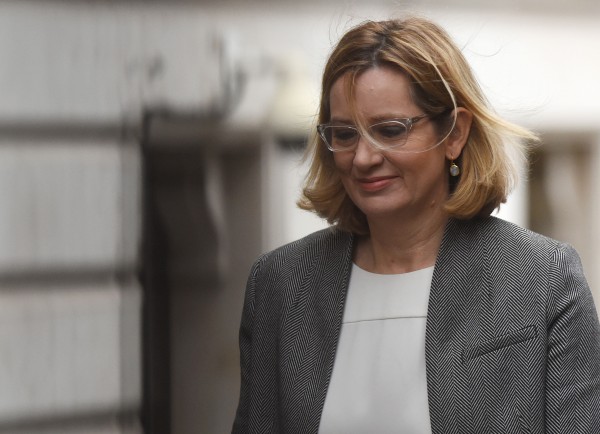
Home Secretary Amber Rudd’s call for technology companies to open up encrypted services to intelligence agencies have been labelled “misguided” by industry experts.
Encrypted messaging services, including WhatsApp and Facebook Messenger, are under pressure from the Government to allow intelligence services to monitor potential terrorists following reports that Westminster attacker Khalid Masood may have used WhatsApp moments before his attack.

Ms Rudd has called on messaging apps that use encryption to install so-called “back doors” in their systems so that, with a warrant, police and the intelligence services could monitor the otherwise secure communications of those linked to terrorism.
However, the plans have been criticised over their potential threat to mobile device security in general, with the tech industry calling the use of encryption a vital tool in ensuring users’ cyber security.
It says the technology is used to hide personal data, including financial information, from hackers and cyber criminals.
Sam Dumitriu, from think tank the Adam Smith Institute, said Ms Rudd’s call for access was “deeply misguided”.

“It is mathematically impossible to build a back door for just the good guys,” he said.
“It means building a back door to your private messages for (Russian President Vladimir) Putin’s favourite hacker Guccifer. It means opening up your private photos to perverts like the iCloud hacker. End-to-end encryption keeps us safe.
“Khalid Masood wasn’t even on MI5′s 3,000-strong list of suspected jihadis. Ending end-to-end encryption would not have stopped the Westminster attack but it would mean a free-for-all for cyber criminals and Putin’s hackers.”
Masood reportedly used Facebook-owned WhatsApp moments before mounting his attack on Westminster Bridge and Parliament.

However, there has been no confirmation or evidence to suggest he sent a message via WhatsApp. Questions have also been raised over the Government’s need for further steps to remove encryption if the intelligence services have access to Masood’s phone, which has not been confirmed
Antony Walker, deputy chief executive of UK industry body techUK, said the Government already had enough powers at its disposal.
“Following the implementation of the Investigatory Powers Act, the UK has a range of strong powers relating to interception warrants, equipment interference warrants and bulk communication data acquisition warrants that enable the security services to do their job,” he said.

“This legislation was put in place following an extensive and rigorous process of Parliamentary scrutiny focused on ensuring the checks necessary to keep a democratic society secure.
“As the outgoing chief of GCHQ Robert Hannigan said last year, within a transparent legal framework it is for all those involved – Government agencies, tech companies, academia and civil society – to work out what is possible together.”